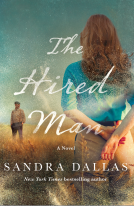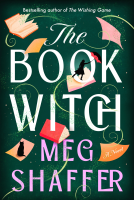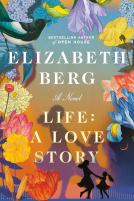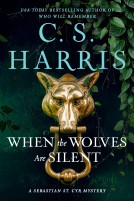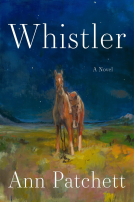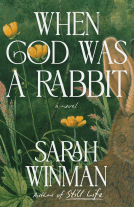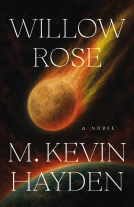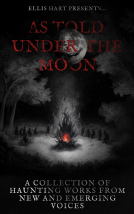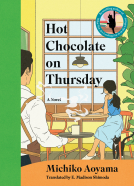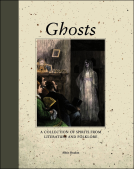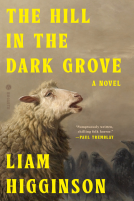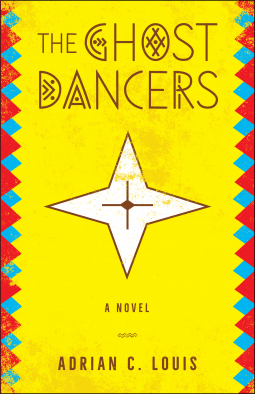
The Ghost Dancers
A Novel
by Adrian C. Louis
This title was previously available on NetGalley and is now archived.
Send NetGalley books directly to your Kindle or Kindle app
1
To read on a Kindle or Kindle app, please add kindle@netgalley.com as an approved email address to receive files in your Amazon account. Click here for step-by-step instructions.
2
Also find your Kindle email address within your Amazon account, and enter it here.
Pub Date Sep 14 2021 | Archive Date Sep 13 2021
Talking about this book? Use #TheGhostDancers #NetGalley. More hashtag tips!
Description
Adrian C. Louis’s previously unpublished early novel has given us “the unsayable said” of the Native American reservation. A realistic look at reservation life, The Ghost Dancers explores—very candidly—many issues, including tribal differences, “urban Indians” versus “rez Indians,” relationships among Blacks, Whites, and Indians, police tactics on and off the rez, pipe ceremonies and sweat-lodge ceremonies, alcoholism and violence on the rez, visitations of the supernatural, poetry and popular music, the Sixties and the Vietnam War, the aims and responsibilities of journalism, and, most prominently, interracial sexual relationships. Readers familiar with Louis’s life and other works will note interesting connections between the protagonist, Bean, and Louis himself, as well as a connection between The Ghost Dancers and other Louis writings—especially his sensational novel Skins.
It’s 1988, and Lyman “Bean” Wilson, a Nevada Indian and middle-aged professor of journalism at Lakota University in South Dakota, is reassessing his life. Although Bean is the great-grandson of Wovoka, the Paiute leader who initiated the Ghost Dance religion, he is not a full-blood Indian and he endures the scorn of the Pine Ridge Sioux, whose definition of Indian identity is much narrower. A man with many flaws, Bean wrestles with his own worst urges, his usually ineffectual efforts to help his family, and his determination to establish his identity as an Indian. The result is a string of family reconnections, sexual adventures, crises at work, pipe and sweat-lodge ceremonies, and—through his membership in the secret Ghost Dancers Society—political activism, culminating in a successful plot to blow the nose off George Washington’s face on Mount Rushmore.
Quintessentially Louis, this raw, angry, at times comical, at times heartbreaking novel provides an unflinching look at reservation life and serves as an unyielding tribute to a generation without many choices.
Advance Praise
“Adrian Louis has written a profane, hilarious, violent, and brutal novel. Instead of Dark Noir, let’s call it Red Noir. It’s like Raymond Chandler and Kurt Vonnegut had an Indian baby boy who grew up to be a wild poet and novelist. This book will get some people angry because it doesn’t fit in today’s safe and sane literary world. But that’s the point. Adrian didn’t want to belong. He was an outsider and he was half-crazy. And he writes about Indians that all of us half-crazy Indians recognize: the damaged men and women who live at the margins and are fighting to win some damn dignity in a country designed to murder our souls. This book, however unfinished, is a testament to Adrian’s courage, originality, and hard-earned empathy.”
—Sherman Alexie, PEN Faulkner and National Book Award winner, Spokane/Coeur d’Alene Indian author whose latest book is You Don’t Have to Say You Love Me, a memoir
“Adrian C. Louis’s THE GHOST DANCERS is like so much of Louis’s work: gritty, mean, and wonderfully honest. It’s true that for the contemporary audience, this novel is a shocker—but there is a tenderness to Louis’s work if one is able to see that Louis desperately wanted a true-to-life portrait of Native existence in the literature, one that you so rarely see, and that, through all of its warts, Louis loved fiercely.” —Erika Wurth, author of BUCKSKIN COCAINE
“This is a novel of unkind sentiment—the colonizer will run; the reviewer will ask for permission to create a blemish of words that tries to substantiate the grief within. But there will not be a way to absorb the novel except to sit with it. It will smolder its way into the reader and leave you there, no solutions, no resolution save the hardened torment of what’s just outside the trailer.” —Shaun Griffin, author of BECAUSE THE LIGHT WILL NOT FORGIVE ME and ANTHEM FOR A BURNISHED LAND
Available Editions
| EDITION | Other Format |
| ISBN | 9781647790240 |
| PRICE | $28.00 (USD) |
| PAGES | 264 |
Links
Average rating from 39 members
Featured Reviews
 sara a, Reviewer
sara a, Reviewer
Native American grit lit at its best! There are no totally lovable characters in this book, but their humanity really shines as they tackle their difficult lives. I really enjoyed reading this and getting a view of life on Pine Ridge Reservation. There's nothing pretty here, but if you want a more realistic view of life on the reservation, this is your book.
 Rhonda B, Reviewer
Rhonda B, Reviewer
I absolutely loved this book! What a great Native American story! We need more of these. I highly recommend this book.
 Laura H, Reviewer
Laura H, Reviewer
Writing: 4.5/5 Characters: 4.5/5 Plot: 4.5/5
A posthumous publication by the author of Skins, this is a raw story of Indian life in late 80s / early 90s. Bean Wilson is an educated Indian — a well known poet and journalist. Born and raised a Paiute in Nevada, he now lives and works with Lakota Sioux on the Pine Ridge reservation in South Dakota. The events in the book follow Bean, his son Quanah, and his girlfriend’s son Toby. Wilson’s interior and verbalized rants permeate the pages on topics ranging from Indians (and himself in particular) being their own worst enemies to harangues on White oppression. While he tries to honor the old ways, he grapples with alcoholism and his womanizing tendencies. The writing depicts his internal struggles and the male culture in which those are common and even respected traits. This is extremely well done. It’s often crude, but feels real and does an excellent job of fleshing out each of the primary male characters — their experiences, their interactions with friends, family, and those who are “other” and the impact on their personal development. Oddly enough, while plenty of bad things happen, I didn’t find it depressing the way I do most Louise Erdrich books. The tone is not as emotional, or maybe it is more angry and less hopeless. Perhaps this is because the real focus is on men? The women characters have depth, but the real magnifying glass is on the men.
I have no insight into why this was not published when it was written — probably in the late 80s or early 90s according to the Forward. That was the only frustrating bit — the world was so well-depicted and I have no clue how things may or may not have changed since then.
The writing is powerful, insightful, and supports the complexity required of any real story. Some quotes below demonstrate both the writing and some of the rants. I loved the first line (which is also the first quote) — somehow it just completely grabbed me.
“The Cancerous burrito of Los Angeles summer seemed to have no effect upon the rambunctious innocence of yelling Chicano kids.”
“Bean looked from the two warriors in the painting to the two Pine Ridgers and repressed an urge toward epiphany.”
“American was a cannibalistic society. There was no true freedom in America. The White man thought he was free. The Black man thought he had been freed. The Indian knew he had been corn-holed.”
“…that garish monument to White greed, carved out of the mother earth, gouged out of the sacred Black Hills, and stolen from the Indians despite the treaties promising no intrusion.” (About Mount Rushmore)
“He despised the rhetoric of contrition that AA and its kindred organizations espoused. He despised the self-righteous reformed drunks who made their various programs for alcoholics a large industry on the Pine Ridge reservation.”
“It’s depressing to the max around here. I hate to say it, but you Sioux live like Black people in ghettos. No pride. No hope. Just booze, drugs, and violence. Pregnant teenagers and commodity cheese.”
“And as educated Indians, we know who our worst enemies are. Some of the worst are our own people. They must be re-educated, those that are the rip-offs. And the other bad enemy is the White liberal who lives on the reservation and purports to help our people. They are bloodsuckers. But that is a different matter.”
 Judy B, Librarian
Judy B, Librarian
The Ghost Dancers is a previously unpublished novel by American Indian poet, Adrian Louis. Louis takes a frank look at life on the rez through the eyes of Lyman "Bean" Wilson, a Nevada Indian and professor of journalism at Lakota University in South Dakota. Bean is suffering an identity crisis of sorts. He is the great grandson of Wovoka, the creator of the Ghost Dance religion. But Bean is not full-blooded Indian and therefore not accepted by the Pine Ridge Sioux, even though he's a member of the secret Ghost Dance Society. Bean stumbles through his life, making bad choices and trying to fit in. Like Louis's other works, this is a stark. realistic look a life on the reservation and a life where the choices are limited. Thanks to Net Galley for the ARC.
 Mandy J, Reviewer
Mandy J, Reviewer
Adrian C Louis (1946-2018) was from Nevada, a member of the Lovelock Paiute tribe, and lived on the Pine Ridge Reservation in South Dakota. He wrote both prose and poetry about Native American life, and this novel, The Ghost Dancers, written 30 years ago, is now published for the first time posthumously. Louis’ writing is not widely known, but on the evidence of this novel deserves to be. The story focuses on Bean Wilson, a middle-aged professor of journalism at Lakota University, who constantly reassesses and re-evaluates his life and beliefs whilst struggling with his personal relationships and his drinking. It’s a no-hold-barred examination of reservation life and an unflinching exploration of the ills that beset Native American communities: alcohol, violence, drugs, abusive relationships, violence of all kinds, and self-destructive behaviour. It’s a graphic depiction of dysfunction and insightful about what has led to it, namely US colonialism and its culpability towards Native Americans. The writing is good, if not great, the characterisation authentic and the descriptions of daily life vivid. It’s hard to feel sympathy for the characters but their plight seems real and believable. An interesting, thought-provoking and powerful read.
Readers who liked this book also liked:
We Are Bookish
LGBTQIAP+, Romance, Sci Fi & Fantasy
Benjamin Reynaert
Arts & Photography, Home & Garden, Reference
